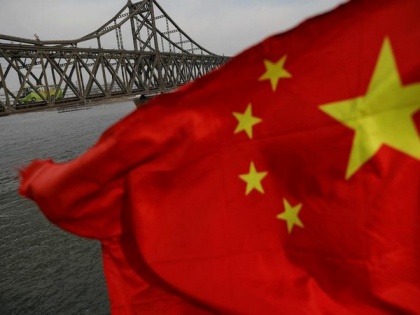China's economy badly hit by Covid lockdowns, negatively affecting businesses, consumers
By ANI | Published: October 20, 2022 05:11 AM2022-10-20T05:11:26+5:302022-10-20T10:45:07+5:30
The economic indicators from China don't look encouraging as the country had been badly hit by widespread coronavirus lockdowns negatively affecting both businesses and consumers.

China's economy badly hit by Covid lockdowns, negatively affecting businesses, consumers
The economic indicators from China don't look encouraging as the country had been badly hit by widespread coronavirus lockdowns negatively affecting both businesses and consumers.
China, the world's second-largest economy Gross domestic product (GDP) fell by 2.6 per cent in the three months to the end of June from the previous quarter, reported Geo-politik.
Major cities across China, including the major financial and manufacturing hub Shanghai, were placed on full or partial lockdowns during this period. Together these hubs of manufacturing and transport are home to 127 million people.
In April, not a single automobile was sold in Shanghai, according to a report in the Washington Post. Shanghai's economy reportedly shrank by 13.7 per cent during the quarter ending in June.
The length and severity of Shanghai's lockdown sent shockwaves through global supply chains and even led to a rare outburst of public dissent from residents who complained of food shortages and arbitrary quarantine measures, reported Geo-politik.
The slowdown was particularly visible in individual consumer spending, despite authorities' efforts to build up consumption as a driver of economic growth.
Consumers cut back on spending across the board, whether it was on big-ticket items like cars or lower-cost products like cosmetics available online from e-commerce platforms, reported Geo-politik.
In a rare move, China's central bank cut lending rates on August 15 to revive demand. Growth has halted, youth unemployment reached a record high, the housing market looks wobbly and companies are struggling with supply chain constraints.
China's job market has sharply deteriorated in the past few months. Most recent data showed that the unemployment rate among 16 to 24-year-olds hit an all-time high of 19.9 per cent in July, the fourth consecutive month it had broken records. That means China now has about 21 million jobless youth in cities and towns. The overall figure is likely to be much higher since rural unemployment isn't included in official figures, reported Geo-politik.
There are signs of distress in China's housing market. An increasing number of home buyers are refusing to pay mortgages on unfinished projects. Chinese property developers sharply cut investment in July, while new construction starts suffered their biggest fall in nearly a decade, reported Geo-politik.
Nationwide, at least 74 cities had been closed off since late August, affecting more than 313 million residents, according to CNN calculations based on government statistics.
Goldman Sachs in September estimated that cities impacted by lockdowns accounted for 35 per cent of China's gross domestic product (GDP).
It was China's worst economic performance in two years, adding to concerns about the prospect of a global recession.
In early July, Chinese Premier Li Keqiang visited the coastal city of Fuzhou to meet with officials from across the south-eastern industrial belt about how to stabilize the economy. According to the official Xinhua News Agency, Li urged officials to steer the economy "back on track."
For Chinese premier Xi Jinping, maintaining that legitimacy is more vital than ever as he seeks to be selected for an unprecedented third term during the Communist Party Congress currently underway.
Experts from Wharton and Stanford University believe that the challenges to China's economy are deeper, structural, and longer term, and have been building for years, reported Geo-politik.
These include over-investment, high savings and modest if growing, consumer spending, high debt and low industrial productivity.
( With inputs from ANI )
Disclaimer: This post has been auto-published from an agency feed without any modifications to the text and has not been reviewed by an editor
Open in app